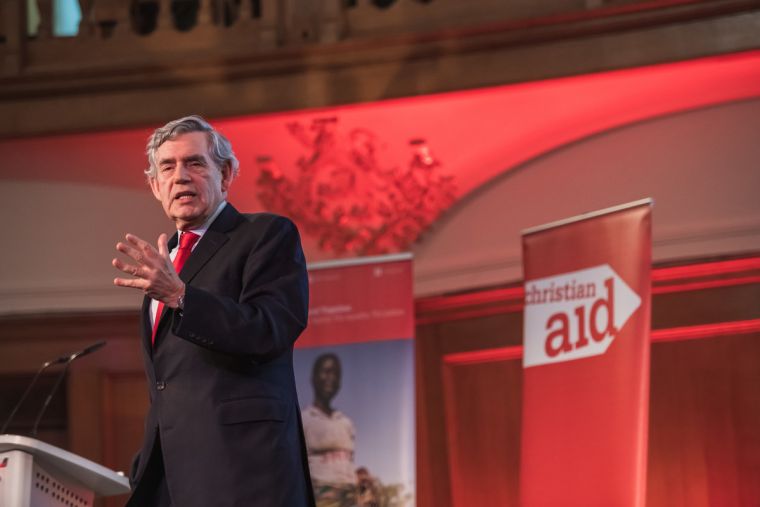Britain needs to be 'engaged and not disengaged with the rest of the world,' says Gordon Brown

Former Prime Minister Gordon Brown helped to launch Christian Aid Week 2019 with an address in Westminster at which he said Britain needed to be "internationalist" instead of isolated in its outlook.
Mr Brown said that the deadlock over Brexit came down to two competing views of the kind of country Britain should be, one nationalist and one globalist.
Warning that divisions over Brexit could take at least a generation to heal, he said the deadlock would not be resolved until people and politicians were able to agree on their vision for Britain.
"There is one vision of Britain that derives from people's misunderstanding of the Dunkirk spirit - this idea that we are better off when we stand alone, aloof and apart, sufficient unto ourselves, isolated if necessary, supposedly this independent spirit that means we are better off when we are disengaged from the world," he said.
"There is a second vision of Britain - a Britain that is open, outward-looking, engaged and not disengaged with the rest of the world, a Britain that is internationalist in its outlook, a Britain that sees it has responsibilities not just to itself."
He admitted he was worried that the divisions over Brexit were "now so deep and so pervasive that it could take a generation for us to reconcile these differences, bring people together and find a unifying vision of our country and a sense of purpose and direction that takes us forward into the modern world".
Mr Brown continued: "Let us be honest, there are two visions of Britain that are competing with each other.... It's not just that parliament is deadlocked and can't agree - it's more than that: it's that there is a fundamental disagreement about what kind of Britain we are trying to be. And unless that is resolved it's going to be difficult to move forward."
He argued persuasively against nationalism and isolation, saying that Britain - and other countries - should be ready to engage with the rest of the world.
"If you have America first, India first, Japan first, Russia first, Turkey first, Britain first, then you have a world where it's impossible to get agreements to do the things we need to do," he said.
"We have to find a way of defeating the argument that the best way of running the world is every nation for themselves."
Turning his attention to critics of the government's aid spending, Mr Brown said the money was being well spent.
"We've got to argue back against people who say that aid is unproductive, aid is wasteful, aid is money going to the wrong people, aid is somehow inefficient - when all the evidence is that aid is well-used and even more necessary if we're going to deal with fundamental problems that no decent citizen in Britain would tolerate if they saw what was happening first hand," he said.
Elsewhere in his speech, Mr Brown, the son of a Church of Scotland minister, recalled his own connections with Christian Aid Week as his mother used to be one of its volunteer fundraisers.
He described the aid agency as one of Britain's "great national institutions" that showed "social movements that bring about change are built on moral foundations".
"I've got a very personal interest in Christian Aid because I will always remember the mountain of red envelopes that my mother was responsible for," he said.
Referring to the theme of Christian Aid Week – maternal health in Sierra Leone – Mr Brown said: "Hope is found in the ten thousand churches involved with Christian Aid Week, the fifty thousand collecting red envelopes, in the many doctors and nurses in Sierra Leone saving lives. One circle of empathy binds us all."











